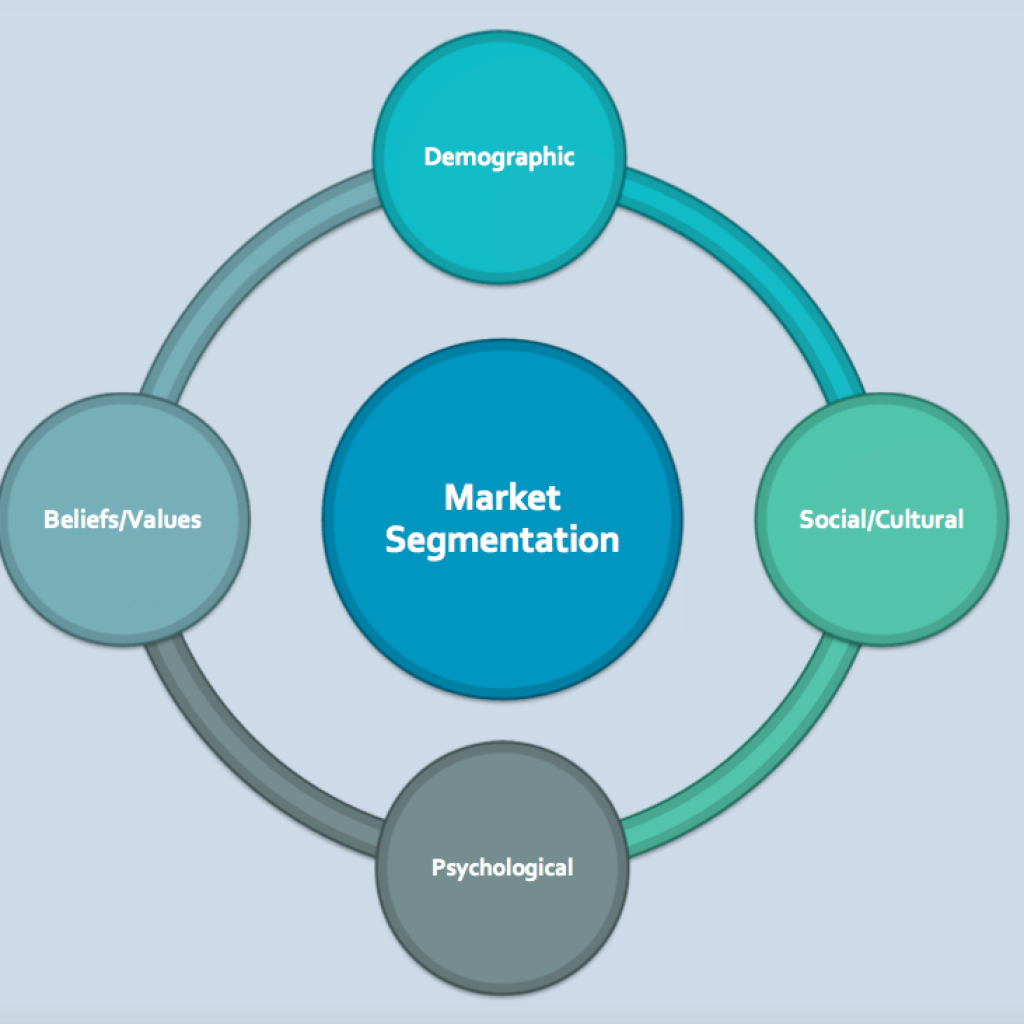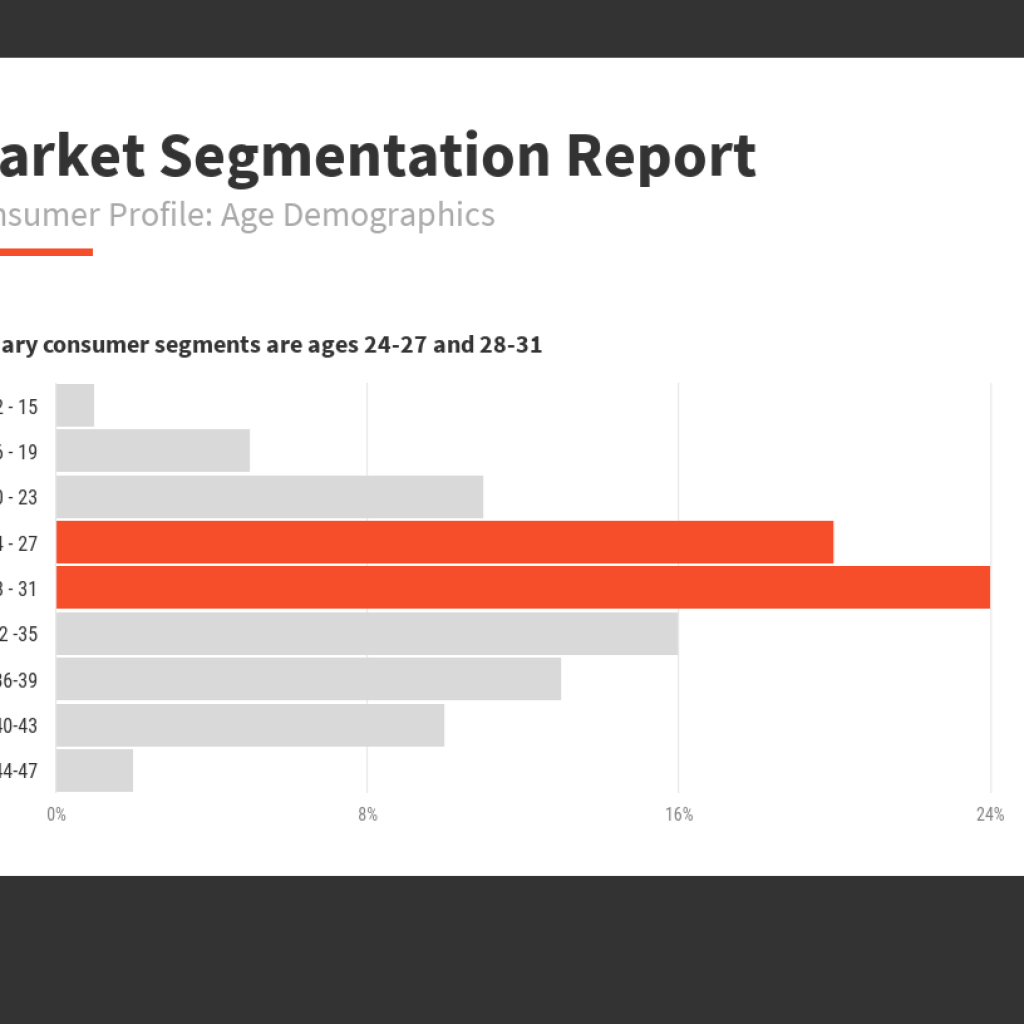Market segmentation: What Is It?
Market segmentation is a marketing term for prospective customers according to their preferences and areas of interest. The company’s intended market will respond favourably to its offering. Because of market segmentation, businesses can offer various products to different customer segments. For instance, a person just starting uses one product, while a well-established person in the industry uses a different outcome.
Market segmentation enables businesses to pinpoint the consumer demographics most likely interested in their goods and adjust their branding and advertising accordingly. Divide markets into segments based on geography, demographics, and consumer behaviour. With reduced business risks, and it is clear how it will market and deliver a product, it can experiment with new approaches to investigate potential business ventures that could be more lucrative. Targeting only customers most likely to be satisfied is possible thanks to market segmentation. You can reach a market more successfully and provide better goods and services by segmenting it into groups of people with shared traits. It enables the creation of more specialised and focused marketing campaigns.
Market segmentation is essential
You may be wondering what the most significant advantages of using the four main types of market segmentation are now that you are aware of them. First, businesses can use market segmentation to learn more about their customers’ wants and needs. Then, they can modify their campaign to suit the requirements of each customer. Using this tactic will help you develop a cohesive plan. Your target market’s segments are just one thing that it accomplishes.

1. Customer loyalty
Knowing what your customers want and need will enable you to keep them satisfied, increasing customer retention. In addition, they’re more likely to stick around because they’ll have a better experience with your brand. A recent study found that when customers have a poor customer experience, they are more likely to switch to competitors (the study also found that this contributed to their overall brand experience). In addition, they will find it very difficult to say no to you if every message and item you share with them resonates with them in some way.
2. Expand the company
Market segmentation can help you find customers similar to your current customers if you want to explore new markets. Market segmentation is helpful for those who are already aware of you and those unaware of you because it allows you to identify the gaps in your current targeted audience. A deeper understanding of your customers will enable you to identify any unforeseen issues or needs that they might have, improving your relationship with them as a business partner. In addition, knowing your current and potential customers will help you launch new products, rebrand existing ones, or create new brands. All these can increase your potential customers while attracting them with more engaging content.
3. Reduce the spending rate
Knowing the proper way to communicate with customers will help you be less inefficient and manage costs more effectively. The secret to effective marketing is accurate customer segmentation. The days of your team wasting time trying to create something memorable are long gone. Instead, you can consistently reach your target audience with segmented campaigns.
Also Read: What Is Market Segmentation?
Why market segmentation is beneficial to business
1. Campaign Performance is improved
Market segmentation can help marketing campaigns succeed by ensuring people receive the correct information at the right time. By learning more about your audience, you’ll be able to concentrate your efforts where they’re most needed. Targeting a narrow audience is much more successful than reaching a large one. This way, you can spend less on advertising while still getting good results. Understanding your target market will help your marketing campaign be more effective. If you target someone with the right traits, you can significantly raise the conversion rate of a campaign.

Targeting is a powerful marketing strategy that enables businesses to increase ROI, conversions, and content relevance. For instance, a company might advertise dental tools to dentists but not to the general public because it would be useless to them. Certain brands only benefit from targeting. Even if your target market is highly diverse, segmentation enables you to communicate with different demographics and become more pertinent to them. Let’s say, for instance, that you sell furniture. By bringing up their interests or knowledge in conversation, you can establish stronger bonds with people of a certain age.
2. Product development
You can create products that better meet your customers’ needs by effectively segmenting your market. You can develop a product that is suited to their needs and increase the likelihood that they’ll buy it by focusing on specific segments and developing unique products for each one. For example, consider that you own a car dealership and that middle-class families make up most of your clientele. To fit a large family with several children, you might design a car with plenty of seating and legroom. Additionally, you would ensure that almost all controls are within reach or easily accessible from the driver’s seat. However, you could divide the audience into smaller groups and develop offers tailored to each group.
One segment might include individuals who enjoy hiking or travelling, for instance. You could provide a car with a durable exterior to appeal to them. Another group might favour excursions into the city. Those cars can be smaller so drivers can easily manoeuvre through congested city streets and fit into small parking spaces. Considering your customers’ needs is the best way to sell the products. By providing excellent customer service, you’ll make them happier, increase customer retention, and dazzle others.
3. Fresh ground to cover
To enter new market segments, businesses can identify audience segments they are not currently marketing. Your business can accomplish this with the aid of the market segmentation technique. When you look at their data, you might learn information about your audiences that you were unaware of, such as their interests or most-used apps. For instance, a company selling goods in brick-and-mortar stores might want to expand into e-commerce if they look at the behavioural data and see that many customers interact with their website. They could then choose between opening an online store or starting to promote their online marketplace more based on this information. As an illustration, a business primarily serving middle-aged women might begin selling children’s clothing. These products could be unveiled and promoted as presents for their grandchildren.
4. Strengthens enterprise
Focus Market segmentation can assist businesses in concentrating their efforts and choosing a specific market to specialise in, allowing them to build a brand identity and create products that satisfy consumer needs. Brands that aim for universal appeal will come across as unoriginal. A company must avoid confusing its customers by entering too many markets. This could make it difficult for customers to understand the brand’s values and the types of products it offers, which would lower quality and decrease customer satisfaction. A common concern for first-time business owners is how to differentiate their company from the competition when their product offering is similar to that of a competitor. To gain a competitive advantage, many of the best-known brands in the world have found success by concentrating on fewer products while they are still in the early stages of their growth.
5. Assists in making other business decisions
Market segmentation can also help your company’s pricing and distribution strategies. To get customers in the door to see other products that are still expensive, retailers will occasionally lower the price of one product. Businesses occasionally have to make difficult choices, like deciding how much to charge their clients. They can segment their market according to customer demographics and observe trends in what consumers are willing to pay for various goods. They might also consider how much a customer’s price sensitivity influences their purchase decision. Businesses can increase sales and maintain them during challenging times by timing special offers and promotions at the right time of year.

Market segmentation can help you determine where your business should concentrate its resources. For instance, some people prefer shopping online, while others prefer shopping in a physical store. Google Maps helps companies to identify the stores their target customers frequent to find a particular product. For instance, you can find out where your customers go if you sell luxury goods. Additionally, demographic information can help you choose the store where you should promote your products.
6. Provides market opportunities and creates them
Market segment helps in the identification and understanding of potential market opportunities. For example, the market segments where consumers are dissatisfied with other brands represent opportunities for the company to focus on and build its brand. In addition, companies can operate in these markets by offering consumers better products than those already available on the market, thereby winning their loyalty. As a result, market segmentation provides fantastic business opportunities.
Also Read: Artificial Intelligence In Business
Conclusion
Market segmentation is crucial, and its advantages cannot be avoided. However, it would help if you had the appropriate tools and knowledge to benefit from market segmentation fully. To learn more about the issues in this regard, look at the advantages of market segmentation. It is critical to comprehend the market, the consumer, and their actual needs. To implement effective marketing strategies, we need to study the markets. Only after a promising market has been identified can be implemented; otherwise, all marketing efforts are wasted.

















